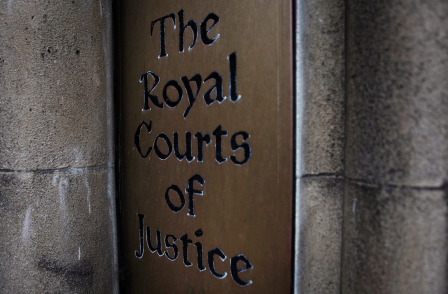
A journalist who conducted what a judge described as being "almost a personal vendetta" against a property developer has been made the subject of a final injunction under the Protection from Harassment Act 1997.
Coverage of businessman Edward Ware's activities by journalist John McAllister started as a legitimate exercise in public interest journalism, but could now no longer be justified as freedom of expression, said Judge Patrick Moloney QC, sitting in the High Court on 24 July.
The story started in 2002, when McAllister reported on the dangers of a site in Bristol with which Ware's company was involved.
He took photographs of the site which showed that it was dangerous, and published a series of online articles outlining the dangers that it posed to the public.
This led to the local authority becoming involved, and the site was cleared up and made safe.
It was accepted that from then onwards, neither that site, nor any others owned by Ware and his company, Edward Ware Homes, posed a danger to the public.
In 2004 Ware asked McAllister to take the articles down, but he refused to do so.
In 2011 Ware instructed lawyers.
McAllister then updated his articles and began criticising Ware to various public authorities and clubs with which he was associated.
The journalist was convicted of harassment and banned from publishing anything about Ware – although he continued to do so – but the ban was lifted on appeal.
McAllister reacted by increasing his campaign and began distributing flyers showing unflattering pictures of Ware.
McAllister argued in response to Ware's application for the injunction that the articles were true and in the public interest, and that it was fundamental under the right to freedom of expression under Article 10 of the European Convention on Human Rights that he should not be bullied into silence by a more powerful man.
Held (Lawtel summary):
(1) Harassment under section 1 of the 1997 Act had to be conduct: (i) taking place on at least two occasions; (ii) directed at the victim; (iii) calculated objectively to cause alarm or distress; (iv) objectively judged to be oppressive and unacceptable; (v) that not just unreasonable, but amounted to "torment" of the victim; (vi) warranting criminal prosecution, Dowson v Chief Constable of Northumbria ([2010] EWHC 2612 (QB)) applied.
The claimant was asking for a final injunction to restrain future harassment, and the court had to be sure that unless it was granted the harassment would continue.
The conduct had occurred on numerous occasions, and was targeted at Ware. A reasonable person would infer that the conduct would cause distress. The conduct was not merely unattractive and unreasonable, but had already incurred criminal liability.
Any future publication would pass that test. The prima facie ingredients of harassment had been made out and there was ample evidence to suggest that it would continue.
(2) A defendant's conduct was justified under section 1 (3) (c) of the 1997 Act if it was reasonable. Where the words were journalistic, whether the conduct was reasonable concerned the balance between the claimant's rights to respect for privacy and family life under Article 8 of the Convention and the defendant's rights under Article 10.
The justifications for interfering with each right had to be taken into account and the proportionality test had to be applied to each, Re S (A Child) (Identification: Restrictions on Publication) ([2004] UKHL 47, [2005] 1 AC 593) followed.
Ware's case was strong: for 13 years he had been subjected to grave public criticisms in strong and vilifying terms. It had grown more severe over the years as every attempt to restrain it had been treated as a further provocation justifying further criticism.
Even a criminal court's restraining order had been ignored, and once it was lifted, the campaign had gathered renewed force. It was akin to stalking.
Ware was caused severe anxiety and distress and his Article 8 rights were very substantially engaged.
As for McAllister's Article 10 rights, the original articles were legitimate exercises in public interest journalism.
But by 2015, it was hard to see that there was any public interest or any other legitimate reasons for the campaign. The fact that at least some the allegations were true was a significant point in the defendant's favour, but it was not a trump card.
It was not necessary to show that the words complained of were false, R v Debnath (Anita) ([2005] EWCA Crim 3472; [2006] 2 Cr. App R (S) 25) applied.
Since 2002 the site had remained safe. Past public interest had evaporated almost completely. There was no continuing future public interest in publication that was sufficient to outweigh Ware's Article 8 rights.
McAllister's submission on freedom of expression had a superficial attraction but did not acknowledge that Article 10 was a qualified right, and when challenged the proper place to debate it was through the courts.
Those who wanted to exercise their Article 10 rights had a countervailing responsibility to show that if the words were injurious to others there was sufficient justification for them.
There was little justification for permitting the defendant to exercise his Article 10 rights in a manner plainly injurious to Mr Ware.
As to proportionality, what had started as a legitimate exercise in public interest journalism had become almost a personal vendetta, based on a desire to reinforce McAllister's own sense of personal worth. It was not a conflict between public interest journalism and private interest, but purported public interest journalism against substantive Article 8 rights. The balance lay in favour of granting relief.
Email pged@pressgazette.co.uk to point out mistakes, provide story tips or send in a letter for publication on our "Letters Page" blog






